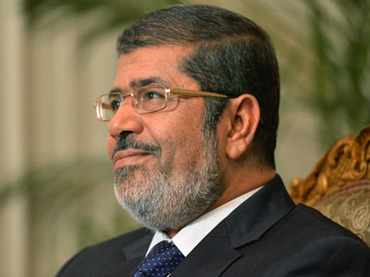LONDON: Militants mourning Osama bin Laden have stepped up threats against targets in the West, taking their cue from an Al-Qaeda statement that followers in the United States and Europe are "perfectly placed" to strike.
The network’s globally scattered online followers spent much of June compiling lists of possible targets including Western companies, business leaders and politicians on password-protected Islamist forums, Western-based experts who monitor the websites say.
Western companies, especially those with military links, seem a particular target, analysts say.
Such "wish lists" do not represent actual plots, since participants suspect, probably with good reason, that the forums are closely monitored by state intelligence agencies.
Nor have the militants tended to couch their comments specifically as vengeance for bin Laden’s May 2 killing by US forces in Pakistan — the notion of retaliation is in any case a given among admirers of the group’s founding figurehead.
Instead militants appear to be responding to a June 2 video appeal by Al-Qaeda core leaders for individuals in the West to carry on bin Laden’s work with "do-it-yourself" strikes on targets using whatever means, no matter how primitive.
"Muslims in the West have to remember that they are perfectly placed to play an important and decisive part in the jihad against the Zionists and Crusaders," Al-Qaeda official Adam Gadahn says in the video, entitled "You Are Responsible Only For Yourself".
"Take America as an example. America is absolutely awash with easily obtainable firearms … What are you waiting for?"
Lists of targets
The video statement also called on militants to develop the internet skills to attack the West in cyberspace.
Following the video, participants in several forums began to compile lists of dozens of potential targets including Western corporations and executives they said militants should assassinate. They included several Western arms makers, oil companies, banks and media companies and former US President George W. Bush and former British Prime Minister Tony Blair, according to the US-based Site Monitoring Service.
The compiling of wish lists of targets is nothing new on the forums. But the large volume of stated targets, and an emphasis on private companies and their leaders, has drawn attention among security officials.
In a study of the threats, the London-based Exclusive Analysis risk forecasting company said there was a small risk of "self-starter jihadis selecting a target from the published list for a small-scale attack, if it is opportune in the area where the individual or small group is active".
But it added that the large number of targets named would "likely" dilute any associated risks, and there were few precedents for a forum discussion inciting an actual attack.
To date, most attacks purportedly motivated by bin Laden’s death have happened in Pakistan, where Al-Qaeda-aligned armed groups have waged a bloody insurgency against the government for years. Earlier on Monday, one of these groups, the Pakistan Taliban, threatened to carry out a series of attacks in the West to avenge bin Laden.
But the al Qaeda video, which also features top al Qaeda strategist Abu Yahya Al-Libi, is an endorsement of a strategy of using "lone wolf" militants pioneered notably by al Qaeda’s Yemen-based arm, security analysts say.
Al Qaeda in the Arabian Peninsula has encouraged several militants in the West to stage attacks over the past two years, including a mass killing at an US military base, a failed attempt to down a US airliner over Detroit, a stabbing of a British politician and a plot to blow up a US-bound plane.
Writer-Turned-Bomber
Approval of what militants call "individual jihad" is a notable development for Al-Qaeda, because its core leaders, believed to be hiding in the Afghanistan-Pakistan border area, have long been believed to favor much more complex, team-based plots like the Sept. 11 attacks of 2001.
Exclusive Analysis noted that while forum discussions usually did not precipitate actual attacks, several forum members had engaged in militant activity in the past.
The most prominent example is a member of the now defunct Al-Hisba forum, Humam Khalil Al-Balawi, who killed seven CIA operatives in a suicide bombing at a US base in Khost, Afghanistan, on Dec. 30, 2009.
Henry Wilkinson of Janusian security consultants said the threats were the first time that businesses had been put "so closely in the crosshairs" of Al-Qaeda and similar groups.
It was not possible to infer reliably that there was a specific threat to a named target, and the adoption of a strategy of lone wolf attacks could reasonably be seen as a tacit admission of weakness by Al-Qaeda, he said.
Nevertheless, companies named by militants would be concerned that they were mentioned in the forums, he said.
The stated intention of the list produced by users of the prominent Shumukh Al-Islam forum, according to a translation of the threats by Exclusive Analysis, is to have it "approved by jihadi leaders … then after the approval, we will add detailed reports with titles, telephone numbers and mail addresses which we will send booby-trapped parcels to".

